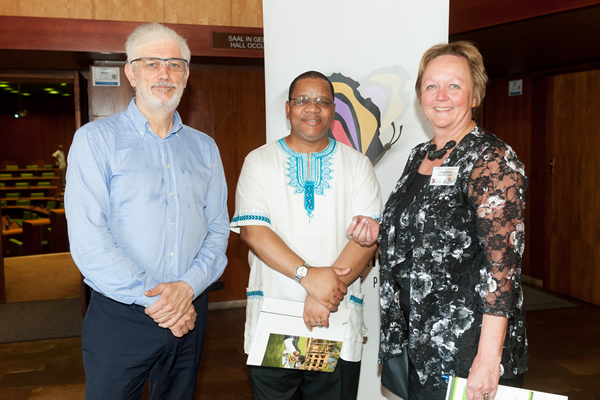A recent conference organised by the Centre for Human Rights shed light on the successes of the African Commission on Human and Peoples’ Rights (African Commission) in influencing the adoption of access to information legislation across Africa.
On Wednesday 9 December 2015, the Centre for Human Rights hosted a conference on ‘Soft Law and Human Rights: The Impact of the Model Law on Access to Information for Africa’, at the Senate Hall of the University of Pretoria. The conference brought together participants from across all sub-regions of Africa which included: academics, students, civil society actors and a variety of public officials.
The Model Law was developed as part of the mandate of the Special Rapporteur on Freedom of Expression and Access to Information in Africa (Special Rapporteur), Advocate Pansy Tlakula, and was adopted by the African Commission in February 2013. Unfortunately, the Special Rapporteur was unable to be present at the conference, as due to her recent appointment as the Chairperson of the African Commission, she was mandated by the African Union Peace and Security Council to lead a fact-finding mission to the Republic of Burundi from 7 to 14 December 2015.
The conference was opened by Prof Themba Mosia, Vice-Principal: Student, Residence Affairs and Accommodation of the University of Pretoria, who gave some welcome remarks on behalf of the Principal. Thereafter, Her Excellency, Ms Trine Skymoen, the Ambassador of Norway to South Africa made some opening remarks, during which she emphasised the importance of the right of access to information for democratic governance and transparency and her eagerness to learn from presentations and discussions during the conference, on the experiences of various African States in the realisation of the right.
In his remarks, Prof Frans Viljoen, Director of the Centre for Human Rights, noted the extensive contribution of the Special Rapporteur in advancing the course of access to information on the continent through the Model Law. He expressed enthusiasm that the conference will uncover useful information and trends on the implementation of the right of access to information in Africa, to enable the Special Rapporteur with the continued assistance of the Centre for Human Rights and other partners, further contribute to the promotion and protection of access to information on the continent.
The discussions in the first part of the conference centered around the development of the Model Law and the impact of the advocacy by the Special Rapporteur to encourage the use of the Model Law in the development and amendment of access to information laws by African Union Member States in Kenya, Ghana, Malawi, Mozambique and Sudan. In 2010, when the process of the development of the Model Law began, only 5 AU Member States had adopted access to information laws. By 2015, 17 had adopted laws.
The conference also shared experiences on the implementation of constitutional provisions and laws on access to information in Kenya, Nigeria, Uganda and Zimbabwe. Finally, the legitimacy of soft law within African Union frameworks was explored, with reference to the Resolutions and General Comments of the African Commission, as well as other Model Laws adopted by the African Union Commission on International Law.
Based on feedback received from discussions at the conference and further feedback from the CHR, presenters are expected to rework their papers with a view to publication in the first half of 2016.
The financial support of the Norwegian Ministry of Foreign Affairs, through the Royal Norwegian Embassy in Pretoria, for this conference is gratefully acknowledged.


